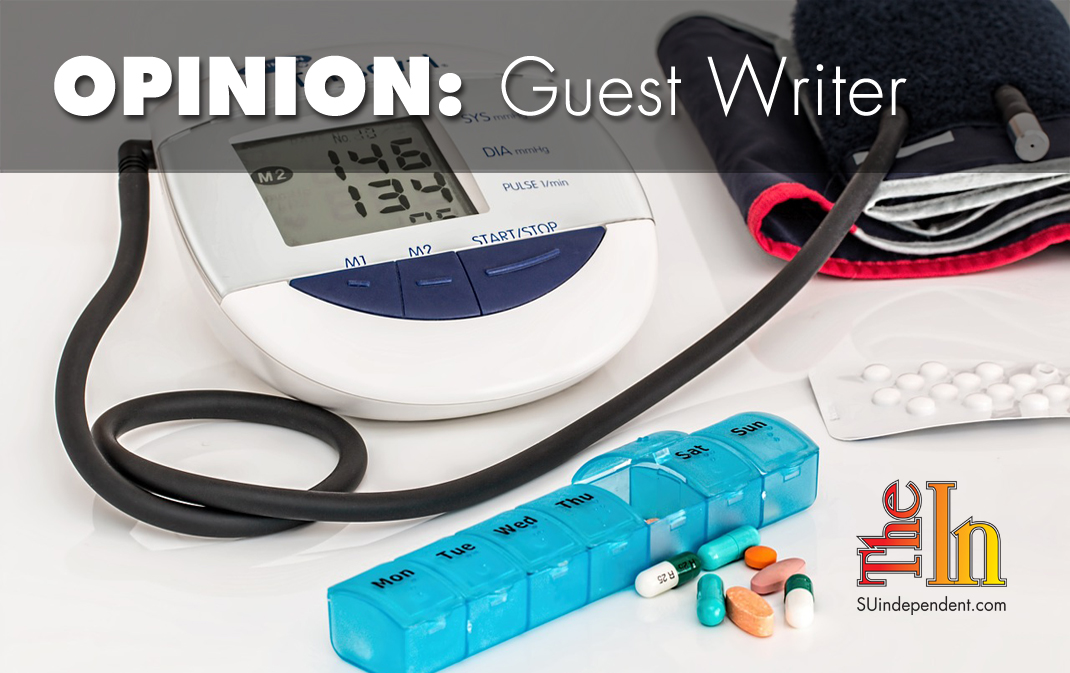
Trump’s new Medicare rule would undermine patient protections
By Kenneth E. Thorpe
The Trump administration is poised to undermine seniors’ access to lifesaving medications.
It recently proposed a rule that would weaken patient protections within Medicare’s “Part D” prescription drug benefit.
Part D drug plans are required to cover all drugs in six “protected classes” of medicines. This ensures that seniors have widespread access to drugs used to treat cancer, depression, HIV, and more.
The administration wants to allow insurers to stop covering some drugs in the six protected classes. This change could result in poorer health outcomes for Medicare’s most vulnerable beneficiaries and inflate health spending in the long run.
Medicare Part D is unique. Instead of providing health benefits directly, the government outsources to private insurers. These insurers compete against one another to sell drug plans to beneficiaries. The government subsidizes and regulates coverage but otherwise adopts a mostly hands-off approach.
This model has been overwhelmingly successful. Today, more than 44 million Americans utilize the program. Eight in ten seniors are satisfied with their plans.
Generous patient protections, especially the “protected classes” clause, play a big role in this high satisfaction rating.
Right now, Part D plans are required to cover “all or substantially all” anticonvulsants, antidepressants, antineoplastics, antipsychotics, antiretrovirals, and immunosuppressants. These medications treat various chronic conditions, including cancer and HIV.
This ensures that doctors can prescribe whatever medication is best for each patient. An antidepressant that works great for one beneficiary might prove ineffective for another.
The administration’s proposed rule doesn’t afford this flexibility. Part D plan sponsors would no longer be required to cover all drugs in the six classes. The change would take effect in 2020.
The administration says the reform would give insurers more leverage to negotiate steeper drug discounts from manufacturers. Thus, patients and taxpayers would benefit in the form of lower plan premiums.
Patient advocacy groups aren’t buying it. Nine organizations, including the National Association of Nutrition and Aging Services Programs, warned against the change. The coalition described the protected classes as a “safety net for some of the most medically fragile” Medicare beneficiaries.
Chronic disease patients will be particularly ill served by the reform. Seventy-five percent of American seniors battle more than one chronic condition.
To make matters worse, the rule could cost taxpayers and patients more money in the long run. Almost nine out of every 10 dollars spent on health care go towards treating chronic diseases. Reducing access to medications could “increase costs to other Medicare programs through increased hospitalizations from complications or increased physicians visits.”
Building barriers to treatment harms both patients and taxpayers. This proposal is a short-sighted approach to Medicare reform.
Kenneth E. Thorpe is a professor of health policy at Emory University and chairman of the Partnership to Fight Chronic Disease.
The viewpoints expressed above are those of the author and do not necessarily reflect those of The Independent.
How to submit an article, guest opinion piece, or letter to the editor to The Independent
Do you have something to say? Want your voice to be heard by thousands of readers? Send The Independent your letter to the editor or guest opinion piece. All submissions will be considered for publication by our editorial staff. If your letter or editorial is accepted, it will run on suindependent.com, and we’ll promote it through all of our social media channels. We may even decide to include it in our monthly print edition. Just follow our simple submission guidelines and make your voice heard:
—Submissions should be between 300 and 1,500 words.
—Submissions must be sent to editor@infowest.com as a .doc, .docx, .txt, or .rtf file.
—The subject line of the email containing your submission should read “Letter to the editor.”
—Attach your name to both the email and the document file (we don’t run anonymous letters).
—If you have a photo or image you’d like us to use and it’s in .jpg format, at least 1200 X 754 pixels large, and your intellectual property (you own the copyright), feel free to attach it as well, though we reserve the right to choose a different image.
—If you are on Twitter and would like a shout-out when your piece or letter is published, include that in your correspondence and we’ll give you a mention at the time of publication.
Articles related to “Trump’s new Medicare rule would undermine patient protections”
Under Medicare for All, government may micromanage your pizza order



